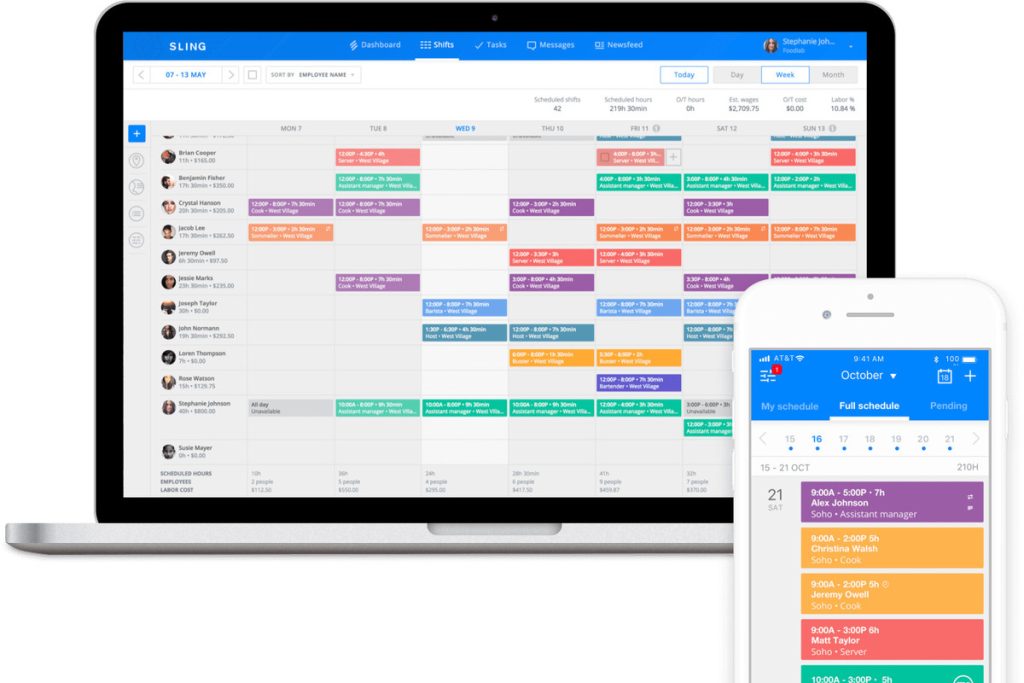In this article, I’ll explore the best employee time management software options available in 2025. These tools are designed to help businesses of all sizes manage their teams more effectively, ensuring that time is tracked accurately and productivity is maximized.
Why Employee Time Management Software Matters
Employee time management software is more than just a tool for tracking hours—it’s a comprehensive solution for improving workflow, ensuring compliance, and gaining insights into team performance. Whether you’re managing a small team or a large workforce, the right software can make a significant difference in how you operate.
Key Features to Look for in Employee Time Management Software

With so many options on the market, it’s important to know what features to prioritize when choosing the best employee time management software for your business. Here are the key features I considered when evaluating the top tools:
Core Features
- Clock-in/Clock-out Functionality: The software should allow employees to easily log their work hours, ensuring accurate time tracking.
- Break and Overtime Tracking: Automated calculations for breaks and overtime help ensure compliance with labor laws and company policies.
- Mobile Compatibility: For remote or on-the-go teams, a mobile-friendly app is essential for seamless time tracking.
- Geolocation and Geofencing: These features are particularly useful for businesses that need to track employee locations, ensuring that clock-ins and clock-outs occur within designated areas.
Usability Features
- User-Friendly Interface: The software should be intuitive and easy to use, requiring minimal training for employees and managers.
- Cost-Effective Pricing: Look for software with fair pricing models, whether it’s a flat monthly fee or a per-user rate.
- Trial Period or Demo: A free trial or demo version allows you to test the software before committing.
- Customizability: The ability to tailor the software to your business needs, such as setting custom work hours or roles, is a major plus.
Additional Features
- Offline Mode: For employees in areas with poor internet connectivity, offline functionality ensures uninterrupted time tracking.
- Project and Task Tracking: This feature is ideal for businesses that need to track time spent on specific projects or tasks, especially for client billing.
- Automated Reminders: Notifications to remind employees to clock in or out can help maintain accuracy.
- Reporting and Analytics: Detailed reports on work hours, breaks, and overtime provide valuable insights into productivity and work patterns.
- Integration Capabilities: The software should integrate seamlessly with payroll systems, project management tools, and other platforms your business uses.
- Compliance Features: Ensure the software helps you adhere to labor laws and regulations related to work hours and overtime.
- Security Measures: Look for features like data encryption, two-factor authentication, and secure data storage to protect sensitive information.
- Approval Workflow: Managers or HR personnel should be able to review, edit, and approve time entries before finalizing them.
- Scalability: As your business grows, the software should be able to accommodate more users and offer additional features.
- Backup and Data Recovery: Ensure the vendor provides reliable data backup and recovery options to safeguard your information.
How I Chose the Best Employee Time Management Software
To create this list, I tested and evaluated numerous time management tools based on the features outlined above. I also considered user reviews and testimonials to gauge reliability, functionality, and customer support quality.
My goal was to identify software that not only meets the needs of businesses but also enhances overall efficiency and productivity.
Benefits of Using Employee Time Management Software

Investing in the right time management software offers numerous benefits:
Improved Productivity: By automating time tracking, employees can focus on their tasks without worrying about manual logging.
Accurate Payroll Processing: Automated calculations reduce errors and ensure employees are paid correctly.
Enhanced Compliance: The software helps businesses adhere to labor laws and regulations, minimizing the risk of legal issues.
Better Insights: Detailed reports and analytics provide valuable data for making informed decisions about resource allocation and workflow improvements.
Streamlined Operations: Integration with other tools and systems creates a seamless workflow, reducing administrative burdens.
Conclusion
Employee time management software is an invaluable tool for businesses looking to optimize their operations and boost productivity.
By choosing the right software, you can streamline time tracking, improve accuracy, and gain insights into your team’s performance. Whether you’re a small business or a large enterprise, the options available in 2025 offer a range of features to meet your specific needs.
Take the time to explore the tools on this list, and don’t hesitate to take advantage of free trials or demos to find the perfect fit for your business. With the right employee time management software, you’ll be well-equipped to tackle the challenges of managing a team and achieving your goals.
